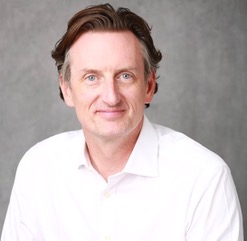Podcast: Play in new window | Download

Palliative care, and the role it plays in health value, is difficult for many people to understand because it runs so contra to the linear algorithm that is allopathic medicine. Curative care – played out in the form of surgeries, procedures, therapies, and various other medical interventions – is focused on doing something TO the patient. This becomes problematic when the patient has a terminal illness – eventually the illness will win. Nature always wins. Palliative care shifts the caregiver’s paradigm from one of asking, “How can I help prevent death?” to the more appropriate question, “How do you want to live?”
When caregivers ask the right question, treatment activities naturally move away from an escalation of clinical interventions that can shorten life and worsen quality of life, and move toward supportive medicine and therapy in the form of symptom-controlling medication, rehabilitation, and counseling that focuses on a patient’s quality of life, symptoms, and emotional wellbeing. – things they do FOR the patient. That’s not to say that curative treatments aren’t appropriate or indicated – palliative care works in partnership with other specialists – but the palliative care provider plays an important role in truly helping the patient understand the nature of the disease, the treatment options, and the patient’s physical ability to respond to the treatments. Inevitably, patients choose less treatment: costs decrease while quality of life increases.
In this episode we speak with Dr. Tim Ihrig, Chief Medical Officer at Crossroads Hospice and Palliative Care. Dr. Ihrig is a nationally recognized thought leader in palliative care, with 1.5 million hits on his Ted Talk “What We Can Do To Die Well” and author of the important book, Palliative Care and Symptom Management. His work in multiple organizations has proven that effective palliative care aligns with the objectives of the Triple-Aim – it is a key organizational and individual competency required to make value-based care a reality.
5:50 Dr. Ihrig explaining his early involvement in the ACLC and his journey in health value
8:00 Reverse engineering the individualized care of a patient into programs, training, policy, and reimbursement
10:45 The linear algorithmic model of treatment that leads to an escalation of clinical interventions
11:05 The need to reform medical education so that death is not always viewed as a failure of the physician
12:30 Asking the question, ‘how do I want to live?’ shifts the narrative to loving, learning, and growing through every breath
13:00 Informed Consent as one of the core tenets of true palliative care
14:10 Physicians must ask the question: what is sacred to you as an individual? That doesn’t change over time, cancer or not.
14:45 Understanding the appropriateness of treatment against the backdrop of where somebody’s at on their physiologic journey
14:53 True palliative care going beyond the limits of allopathic reductionism and looking at the whole human being
16:04 Aligning therapies with the clinical reality of where patients are physiologically and what their goals of care are
16:45 Palliative care needs a concise, unified definition of what it is to overcome current misperceptions
18:31 The present medical paradigm sets up fighting to beat Mother Nature, which means we all fail.
19:56 The inflection period – the moment in our health journey when our bodies no longer have the capacity to recover or restore
22:50 Using the inflection period as a tool to prevent iatrogenic causality which potentiates decline secondary to physiologic stress.
23:45 The diminishing ROI of medical interventions at the inflection period
24:18 Dr. Ihrig describes a personal example of iatrogenic causality that brought about death
25:07 Patients becoming victims when we don’t understand the reality of death and the limitations of medicine
27:00 Shifting the focus of control away from where the healthcare provider and the prescribed treatment is at the center
30:00 Overcoming a patient’s fear of the unknown by asking the right questions
33:10 Transcending medicine by translating the voice of the patient
34:35 The effect of the COVID-19 pandemic on ICU bed utilization and ventilators
36:10 The opportunity of the pandemic experience to rethink health care and how we embrace death
39:15 Dr. Ihrig discusses what is necessary for the acceleration of adoption of palliative care in value-based care
40:40 The misunderstanding that palliative care operatives with a negative financial margin
43:05 Getting ACOs to understand what true palliative care is
45:23 Advice for ACOs looking to start a palliative care program
50:35 The need to educate clinicians on the effective implementation of palliative care delivery models
53:05 Healthcare iatrogenically potentiates the greatest series of atrocities the world has ever known.

Comments are closed.